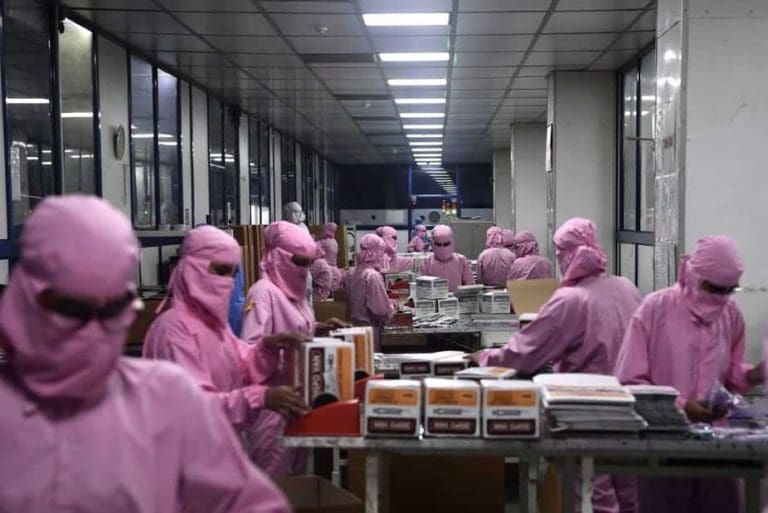The South African Health Products Regulatory Authority (SAHPRA) has authorised local biotechnology company CapeBio to manufacture rapid COVID-19 polymerase chain reaction (PCR) test kits.
Announcing the approval of the test kits on Monday, Science, Technology and Innovation Minister, Dr Blade Nzimande, said the COVID-19 test kits, co-developed by CapeBio and the Council for Scientific and Industrial Research (CSIR), will help to reduce South Africa’s reliance on imports, making it easier for the country and the rest of the continent to gain speedy access to test kits.
“Given Africa’s dependence on imports, the government, through the Department of Science and Innovation (DSI), the South African Medical Research Council (SAMRC) and the Technology Innovation Agency (TIA), led an initiative to respond to the local and continental demand for testing by setting up a fund to develop diagnostic tools, among other resources,” Nzimande said.
Nzimande noted that as the highly infectious Delta variant continues to drive South Africa’s third wave of COVID-19 infections, testing has become increasingly important.
“The more testing is done, the easier it is for a country to track the virus, identify clusters, and act accordingly. This latest development is part of a concerted effort by the department and its partners to build local capabilities to respond to viruses like COVID-19.
“Ensuring that diagnostics, vaccines, are locally manufactured, means that South Africa need not depend on foreign imports of life-saving products. This is crucial, as the COVID-19 pandemic has shown how difficult it is for the developing world to compete with richer nations for access to such products,” the Minister said.
CapeBio CEO, Daniel Ndima said the company and its partners at the CSIR are delighted that the COVID-19 test kits has been approved by the regulators.
Ndima announced that CapeBio has already commenced industrial-scale manufacturing of the test kits at its Centurion facilities, and the first batches will be available for local market uptake before the end of August 2021.
At full operational capacity, Ndima said the company will be able to produce up to 5 000 kits a day, with each kit providing for 1 000 tests.
“This is a massive achievement in the national response to the pandemic and a significant milestone for our country. We will be able to assist the nation and Africa by alleviating our reliance on imports that are normally associated with high costs and long lead times.
“Additionally, this will enable us to supply the local market sufficiently and effectively, confirming CapeBio’s capability to develop health-related tools to assist the government in democratising COVID-19 testing,” Ndima said.
CSIR’s principal investigator for the project, Dr Lusisizwe Kwezi, said SAHPRA’s approval showed confidence in the high standard of local biotechnology development.
“This is a significant breakthrough that confirms the importance of collaborative work between the public and private sector to fast-track the roll-out and uptake of South African technologies. The combination of the CSIR’s research and development infrastructure and expertise, coupled with CapeBio’s capability, contributed to the successful production of a one-step diagnostic assay which will assist in managing and monitoring the spread of COVID-19,” Kwezi said.
In developing the test kits, the research team had access to the CSIR’s existing know-how in areas such as enzyme biomanufacturing technologies.
As a result, in under a year, the team was able to deliver a COVID-19 test kit that could pass CapeBio’s internal tests and external evaluation by the National Health Laboratory Service. The end result is a 100% locally developed, soon to be manufactured PCR test kit, including reagents to test for COVID-19 – a first for South Africa.
Another local biotech company, Cape Town-based Biovac was last month appointed to manufacture the Pfizer-BioNTech COVID-19 vaccine for distribution within the African Union, making it the first company in Africa to produce an mRNA-based vaccine.
Biovac immediately commenced technical transfer activities, including on-site development and equipment installation.
At full operational capacity, Biovac’s COVID-19 vaccine production will exceed 100 million finished doses annually [and] all doses will be distributed exclusively among the 55 member states of the African Union.
In June 2021, the World Health Organization (WHO) and its COVAX partners also announced that they are working with a South African consortium, comprising Biovac, Afrigen Biologics and Vaccines, a network of universities and the Africa Centres for Disease Control and Prevention (CDC), to establish its first COVID-19 mRNA vaccine technology transfer hub. – SAnews.gov.za

